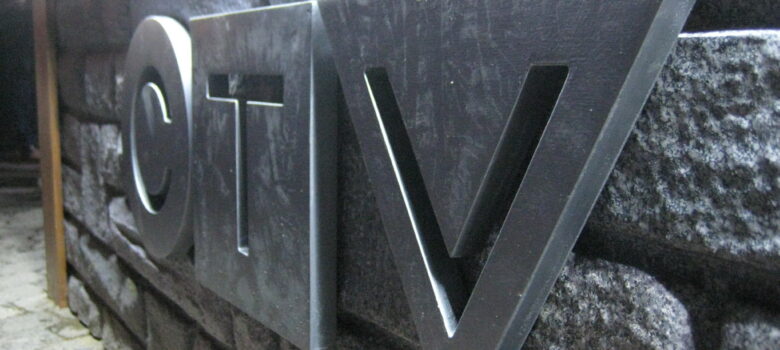As the witness portion of the Canadian Heritage committee hearing into the Online News Act (Bill C-18) comes to a premature end later this week (a hearing is planned with Heritage Minister Pablo Rodriguez and the CRTC, but remarkably Facebook, the CBC, and many experts will be blocked from appearing), new data from the Parliamentary Budget Office calls into question the claims of big benefits for Canadian newspapers. In fact, while the government has been anxious to cite the (questionable) PBO estimate that the bill will generate $329 million per year for Canadian news organizations, last week the PBO quietly released supplementary data that suggested it believes the vast majority of the money will actually go to the CBC, Bell, Rogers, and other broadcasters. In fact, the supplementary data – which was posted with a link only after the release of the PBO’s report – concludes that newspapers will receive less than 25% of the funding or about $81 million to split among hundreds of news outlets.
The government and industry has been anxious to tout the overall PBO number of $329 million, despite the fact that the report does not appear to have been based on much actual data. Instead, it appears to be little more than a guesstimate based on Australian media agreement rumours. Further, there is absolutely no attempt to establish the value of links that would presumably serve as the basis for payments and which remains highly contentious, with the platforms reasonably arguing that the links primarily provide value to the media companies. Given the standards in Bill C-18 and the existence of agreements with 150 news publishers already, suggestions that the Canadian payments will mirror the Australian approach seem off the mark.
Leaving aside the questionable math in the PBO estimate and the fact that it was only asked to estimate the costs of administering the law (not the benefits), the supplementary data that was posted to the PBO site but is not mentioned in the actual report suggests that the real beneficiaries are broadcasters such as the CBC, Bell, Shaw, Rogers, and Corus. According to the supplementary data table, the PBO estimates that $247,646,948 of the total $329,227,742 will go to broadcasters. With just over 75% of the revenues essentially going primarily to telecom companies and the CBC, that leaves just 24.8% or $81,550,794 for hundreds of news outlets including giants such as Postmedia and Torstar, the myriad of digital-first organizations, and local dailies and weeklies in communities across the country. In fact, the PBO expects compliance and transaction costs to eat away $3.6 million of that figure, leaving just under $78 million to allocate to those news companies.
This new benefit breakdown raises several issues. First, it reinforces the absurdity of handing out hundreds of millions of dollars to the public broadcaster and some of the wealthiest companies in Canada such as Bell and Rogers. In fact, given that the platforms do not host the broadcast content and often cannot even link directly to it, it is not even clear how broadcast content is used by the Internet platforms in a manner to merit any compensation. In many instances, the connection may be nothing more than a link to the front page of a broadcaster website, with content that is often only available to cable or satellite subscribers. The connection is even more tenuous with respect to radio content, which barely registers on Facebook and Google, yet the bill is ready to compensate radio giants like Bell.
Second, it suggests that the news media sector is massively overestimating the already inflated estimates with newspapers receiving a relatively small piece of the pie. News Media Canada indicated that it was hoping for coverage of 33% of its costs, an arbitrary number that has no basis in actual value. But given that the government’s Journalism Labour Tax Credit is estimated to cost taxpayers over $100 million per year and it covers fewer news organizations than Bill C-18, the PBO estimate is far lower than the industry’s expectations.
Third, this bill creates serious problems: payments for links (which the broadcasters acknowledged in yesterday’s hearing) raises concerns about the free flow of information online. The absence of standards means the bill could increase clickbait and misinformation. The level of government intervention into the news sector is unprecedented. And the bill undermines Canadian copyright law, international copyright obligations, and Canada’s treaty obligations. Given these problems, the question for Canadians is whether they are comfortable with a quarter billion dollar annual handout to the CBC, Bell, and Rogers as part of Bill C-18. Why does the PBO estimate that less than a quarter of the revenues will go to the very organizations that are heralded as needing support? Is this further competition for dollars from the CBC fair? Further, as the news media giants move to the front of the line for payments, will anything be left for the small digital news organizations and the many smaller local outlets? These all seem like pertinent questions. There are serious costs with Yet Rodriguez and the government are reluctant to address the issues as they move to shut down the committee hearings without having conducted anything close to a comprehensive review of the legislation.








So the MSM broadcast incumbents Get Paid Big Money, thanks to the Liberal Government. Considering the leftward bent of the MSM, it’s not surprising that the scales are being tipped.
What will this do for the citizenry? It will increase costs, reduce choice and ensure reportage is cynically manipulated to misinform the credulous.
Follow the money.
Pingback: Dismissing Digital News Outlets: Liberal MP Claims Online News Services Don’t Report News - E Point Perfect
Everything is just blinded by money